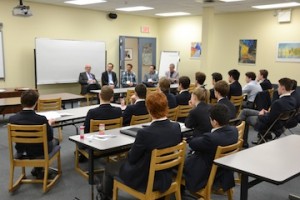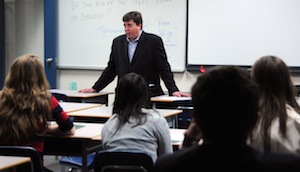 We are holding our annual Career Day today. This student-organized event brings professionals to the school to speak to LCC’s grade 10 and 11 students on the nature of today’s workplace.
We are holding our annual Career Day today. This student-organized event brings professionals to the school to speak to LCC’s grade 10 and 11 students on the nature of today’s workplace.
The concept of “career” is complicated for many young people. Jobs are shifting and changing more rapidly than ever in the past. Some examples of lucrative jobs that didn’t even exist 10 years ago include: App Developer, Social Media Manager, and Sustainability Expert. The list is actually quite lengthy.
On this shifting career landscape, one thing is certain. What were once considered “soft skills” and designated as less important than technical skills, are now considered significant attributes that employers actively seek. More and more, employers are sending messages that they can teach technical skills to their employees after being hired, but the soft skills need to be embedded and need to be strong from the outset. In fact, they now require a new focus, perhaps just as important as technical skills.
So what are soft skills? They include attributes such as: verbal communication, capacity for teamwork and collaboration, tact and diplomacy, empathy for others, creativity, cultural sensitivity, resilience, and flexibility. A positive mindset is also very important.
In his book, Hiring for Attitude, author Mark Murphy claims that close to 50 per cent of all new hires fail in the first 18 months, and of those new hires, 90 per cent fail for reasons associated with attitude and weak soft skills.
So we cannot dismiss soft skills as “fluff.” They seem to be emerging as key skills in today’s workplace. I expect this message will be reinforced in today’s career seminars with our many guests. – Chris Shannon, Headmaster

